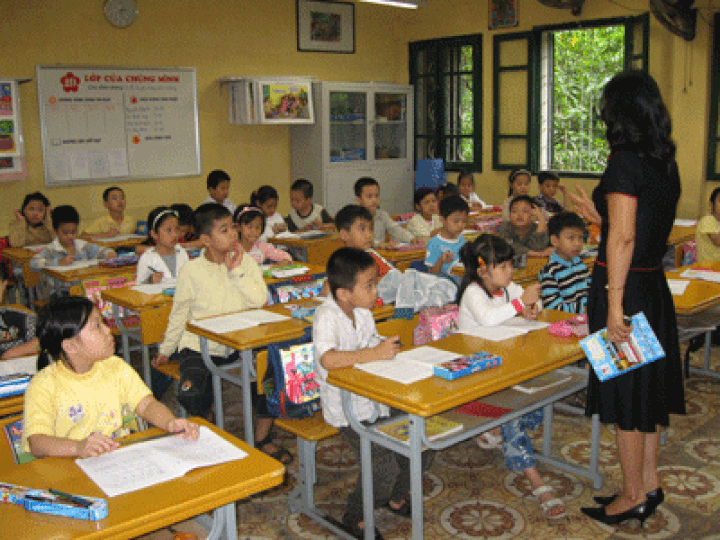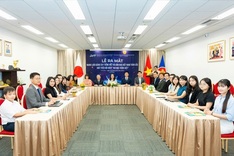Many children are developing language problems after being forced by their parents to study several foreign languages at the same time.

Several children have languages difficulties when studying different foreign languages at the same time
High pressure
Having ample opportunities to study and work abroad, Nguyen Hong Hanh, from Hanoi’s Tay Ho District believed that acquiring foreign language skills was vital to integrating into the world. So, she has decided to force her five-year-old daughter to study four languages at once.
Problems did not appear until her daughter was forced to study different languages for a year, which made Hanh realise her mistake.
“My husband and I have an aptitude for foreign languages. My husband can communicate in English, German, Chinese and French. I thought our daughter may inherit our strengths. At the beginning, my daughter was eager to study. We talked to her in different languages.”
According to Hanh, her daughter has recently begun to become increasingly confused between the languages she has been learning. While she talks to her parents in English and French, she continues to communicate with others in Vietnamese.
“In several occasions, she found it difficult to express her ideas in Vietnamese when talking to her Vietnamese relatives. In some cases, I realised that she was compelled to use other languages, instead of Vietnamese, while talking to her grandmother. But her language use was incorrect in terms of the context,” Hanh shared.
Realising her daughter’s unusual behaviour, Hanh had her visited doctor who said that she incurred language impairment.
“We have to halt our foreign language teaching plans for our daughter and take her to a special class for children with learning difficulties,” Hanh admitted.
In a similar situation as Hanh, Pham Thu Thuy, from Hanoi’s Cau Giay District, had tried to find extra classes of English, French and Japanese for her six-year-old son, with the hope that he would become an “infant prodigy”.
After being forced to study so many foreign languages he began to seek excuses, claiming he was ill and vomiting whenever he saw his foreign language teachers.
“Initially, he just pretended but gradually he got sick, suffered from anorexia and lost weight. He even spoke in his sleep but used strange languages that I couldn’t understand,” Thuy said.
Advice
Nguyen Thi Minh Hoa, an experienced primary English teacher in Hai Ba Trung District, said that the correct teaching methods are vital to inspire children in their foreign language study.
“Not only children aged between three and six but also high school students complain that they have some problems in pronunciation when studying French and English at the same time,” Hoa noted.
Phuong Anh is fluent in English as she specialised in English study at secondary school. She started to study French when she was a 11th grade student. However, she faced difficulties in English intonation and sometimes misspelled several English words into French.
“Even though I started to study another language when I was fluent at English, I still have some language troubles. I am absolutely sympathetic with little children who are forced to study different languages at the same time”, Phuong Anh said.
Dr Tran Tuan, Director of the Research and Training Center for Community Development said, “Due attention should be paid to developing mother tonge for children aged less than three. Children aged between three and five can start studying foreign languages but they need a well considered education programme. The content and design of lessons should suit their ages in order to foster their development. Different languages should be taught separately at different times in order to prevent learning difficulties.”




















